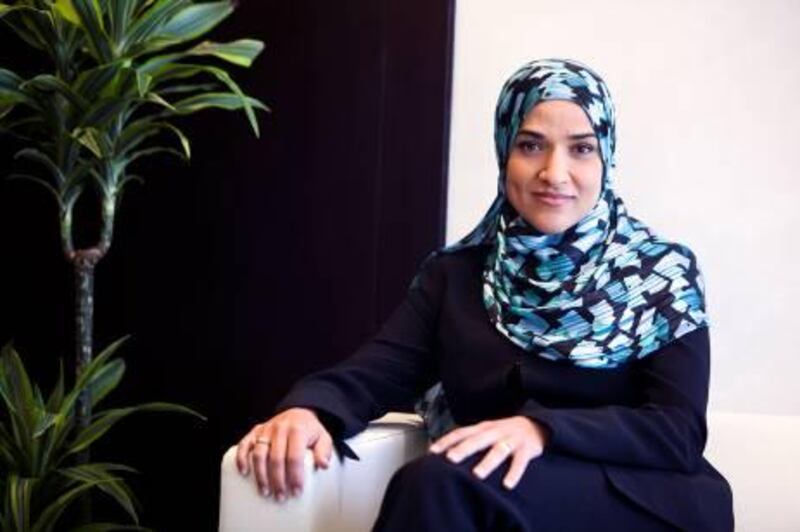Abu Dhabi // The head of a new research centre in the capital says she hopes it will give ordinary Muslims a voice, heard by their governments and the wider world.
"In many ways the Muslim community is commonly discussed and seldom heard," says Dalia Mogahed, the executive director of the Abu Dhabi Gallup Centre.
The centre, a partnership between the Court of Sheikh Mohammed bin Zayed, the Crown Prince of Abu Dhabi, and the global research firm Gallup, plans to address that.
By opening a centre in the UAE, Gallup wants to improve its ability to reach regional policymakers and have an impact on the public knowledge of opinions in the Middle East.
"The centre hopes to widen the lens to include the mainstream," says Ms Mogahed, so that the conversation between the Muslim world and the West is not dominated by "vocal fringe".
A co-author of Who Speaks for Islam? What a Billion Muslims Really Think, and an adviser to the US president Barack Obama, Ms Mogahed says research can help to diagnose problems.
The centre is an extension of the Gallup Centre for Muslim Studies, an independent research centre in Washington DC that provides data-driven analysis of the views of the world's Muslims.
Already, work by the Washington centre has identified fundamental misunderstandings between western and Muslim societies.
"Our research can help to diagnose a problem so that it can be addressed," says Ms Mogahed.
A common misunderstanding uncovered by research is that many westerners view Islam as an inspiration for violence. Studies by Gallup and other groups have repeatedly shown "there is just no correlation between religiosity and violent extremism", she says.
Research can highlight commonalities. While many westerners do not believe democracy is valued by the Muslim world, Gallup found "the majority of people in the Middle East believe in principles of free speech, free press and a representative government".
"It's a set of values Muslims very much understand," she says. She hopes objective data will help to change western attitudes.
Gallup's findings, Ms Mogahed says, have been instrumental in guiding policy in the US. They shaped Mr Obama's landmark speech last year in Cairo, in which he confronted divisions between Muslims and the West, and Israel and its neighbours.
The centre's first study should be ready this month. Gallup interviewed more than 100,000 people in 55 countries to explore the relationship between Muslims and the West. The survey covered countries in the Middle East, sub-Saharan Africa, south-east Asia, central Asia and Europe.
Ms Mogahed hopes better research will lead to better communication between governments and people, both internationally and domestically.
"So many decisions are made by leaders in all societies that don't take into account the realities on the ground," she says.
Gallup's methodology is rigorous. Analysts visit a representative sample of a nation, across geography, class and sex. Researchers have face-to-face conversations with participants in their homes, which allows illiterates and those without phones to be polled.
The result, Ms Mogahed says, is that ordinary people are given a "seat at the table" in political and social conversations.
It can also be a catalyst for social change. In the US, 80 per cent of people think Muslims do not believe in sex equality, Ms Mogahed says. She believes research can help to correct that view.
Polling can uncover women's aspirations, as well as how a society as a whole feels about rights. "A society's views can be way ahead of the reality on the ground," Ms Mogahed says.
For example, in Saudi Arabia, surveys found that most Saudis believed women should have the right to drive. "Laws should not necessarily be assumed to be an accurate reflection of people's beliefs and values."






